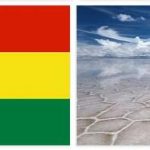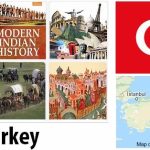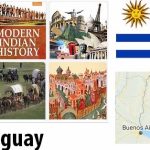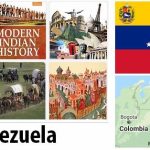Cyprus is a country located in Western Asia. With the capital city of Nicosia, Cyprus has a population of 1,207,370 based on a recent census from COUNTRYAAH. The modern history of Cyprus has been characterized by contradictions between the island’s two major ethnic groups: Greek and Turkish Cypriots. In 1974, a Greek-initiated coup led to Turkey invading the northern part of the island, and in practice Cyprus was divided into a northern, Turkish Cypriot part and a Greek Cypriot south. Since then, tough negotiations for reconciliation have been going on without any real breakthrough.
On August 16, 1960, Cyprus became independent from the colonial power of Great Britain. The new state got a Greek Cypriot, Archbishop Makarios III, as president, and a Turkish Cypriot, Fazıl Küçük, as vice president. All decisions could be stopped by veto by the president or vice president.
- ABBREVIATIONFINDER: List of most commonly used acronyms containing Cyprus. Also includes historical, economical and political aspects of the country.
Disagreement quickly arose about the army. According to Makarios, it would be integrated, while Küçük wanted the two peoples to be divided into separate groups. New conflicts followed. In 1963, serious unrest broke out between the groups. The Turkish Cypriot ministers stopped participating in government work and thus the Greek Cypriots felt they had resigned. Since then, the two groups have not been represented in the same government. The Turkish Cypriots also left their seats in Parliament. In 1964, the UN brought an international peace force to Cyprus: UNFICYP (UN Peacekeeping Force in Cyprus). It included a battalion from Sweden. Check best-medical-schools for more information about Cyprus.
In 1968, the government of Makarios began negotiations with the Turkish Cypriots. They would last until 1974, with no real results.
Elections in the south and in the north
UN resolutions on Cyprus required the country to be a single state with a single government and a single citizenship. That model, without specific legislation for ethnic groups, was supported by the Greek Cypriots, who would constitute the majority in such a state.
In 1970, the first parliamentary elections were held since independence. Among the Greek Cypriots, the Conservatives and the Communist Party enjoyed success, while those who advocated enosis (Cyprus’s association with Greece) suffered defeat. The Turkish Cypriots held separate elections that were not recognized by the Greek Cypriots but won by a moderate party led by Rauf Denktaş (Denktash with English spelling). He demanded that Cyprus become a federation between two “equal” peoples, with extensive regional autonomy for each peoples group.
While the interest in uniting the island with Greece had diminished in Cyprus, it had increased in Greece, where a military junta took power in 1967. With the support of the junta in Athens, the Greek Cypriot Eoka guerrilla was revived under the new name Eoka-B. It targeted its terror against leading Greek Cypriot politicians, including President Makarios, who was believed to stand in the way of enosis.
On July 15, 1974, the Athens junta, in collaboration with Eoka-B, staged a coup d’état against Makarios, which was forced to flee. In response, Turkey occupied the area around the city of Kyrenia and a corridor down to Nicosia. The risk of war between Greece and Turkey was imminent.
The split a fact
A few days after the invasion of Turkey, the junta fell in Athens and thus its puppet government in Cyprus, but the Turkish army did not withdraw. Within a month, Turkey had extended its occupation to more than a third of Cyprus. The UN troops were quite powerless when atrocities were committed on both sides with thousands of dead as a result. One third of the island’s residents fled their homes.
When Makarios returned to Cyprus in December 1974, the island’s division was a fact. In February 1975, the Turkish Cypriots declared their territory to the north as a federal “state”. Makarios died in 1977. The successor Spiros Kiprianou continued the fruitless negotiations with the north side.
The Turkish Cypriots demanded that a political solution be reached before the Turkish troops could leave the island, while the soldiers’ retreat was a prerequisite for a solution according to the Greek Cypriots.
In May 1983, the Turkish Cypriots interrupted negotiations, after the United Nations General Assembly, with a large majority, declared that all foreign occupation forces would leave Cyprus. In November of that year, Turkish Cypriots declared Northern Cyprus an independent state, Northern Cyprus’s Turkish Republic, with Rauf Denktaş as president. Northern Cyprus was recognized immediately by Turkey but not by any other country, and the declaration of independence was stamped by the UN Security Council as illegal. Some Turkish Cypriots, including the Leftist Republican Turkish Party (CTP), also feared that the Declaration of Independence would make it more difficult to resolve the Cyprus issue.
Application to the EC
In southern Cyprus, businessman Giorgos Vasiliou was elected president in 1988, with informal support from the Communist Party Akel. In 1990, the Greek Cypriot government applied for Cypriot membership in the EC (EU from 1 November 1993). The application undermined the contradictions both within and between the two ethnic groups. Turkey and the Turkish Cypriot leadership opposed a rapprochement between southern Cyprus and the EU.
In the 1993 Greek Cypriot presidential election, political veteran Glafkos Kliridis won by a marginal margin over Vasiliou. Kliridis led the Conservative Party Democratic Assembly (Disy). He was keen to link Cyprus to the EU and wanted Western Europe to help resolve the Cypriot conflict. In 1997, Kliridis resigned as leader of Disy, but he still managed to win the presidential election in 1998 with barely a margin.
In Northern Cyprus, President Denktaş had already left his party UBP when a growing dissatisfaction forced it away from the government for a few years from 1994. In his fifth presidential election, in 1995, Denktaş had to fight a second round of elections for the first time before he could declare himself victorious. At the next presidential election in the north of spring 2000, the election results showed declining support for both Denktaş and the challenger, the Prime Minister and UBP leader Derviş Eroğlu. Denktaş remained as president, while Eroğlu continued as prime minister.
In the Greek Cypriot presidential election in February 2003, the then 83-year-old Kliridis failed to be re-elected for a third (curtailed) period. Instead, the new president became Tassos Papadopoulos from the center Diko. In April 2003, the Greek Cypriot leaders signed a treaty with the EU that Cyprus would become an EU member the following year.
Relaxation
In April 2003, Turkish Cypriots opened the border between Northern and Southern Cyprus for Cypriots who wanted to make short visits to the opposite side, something that had not been allowed since 1974. It was widely believed that it was the new government in Turkey that had persuaded Denktaş to do so.
A week later, the Greek Cypriots eased somewhat on the economic blockade against Northern Cyprus that a European Court of Justice introduced a decade earlier. All native Turkish Cypriots were granted the right to apply for a passport with the Greek Cypriot authorities. However, the Greek Cypriots emphasized that the reforms did not mean recognizing the “illegal regime” in the north.
After a parliamentary election in the north in December 2003, Mehmet Ali Talat, leader of the CTP, became the new Turkish Cypriot prime minister. The talk was positive for a reunification of Cyprus and it was clear that more and more Turkish Cypriots were heartily tired of all Turkish soldiers and settlers and the fact that the standard of living in the north was lower than in the south. The Turkish Cypriots were also worried about being sidelined by a Cypriot entry into the EU.
The Greek Cypriots, who had previously been mainly those who wanted a reunion, had for their part begun to get used to the island being divided.
UN plan rejected
In the winter of 2004, then-UN Secretary-General Kofi Annan worked hard to get both peoples to agree on a plan for the reunification of Cyprus, according to which the country would be governed by the Swiss model as a state with two cantons and with rotating presidencies. The president should have only representative powers.
In April 2004, each side held a referendum on the plan. The outside world encouraged the Turkish Cypriots to vote yes. That the Greek Cypriots would vote yes was almost for granted, and the EU had even promised Cyprus membership without first awaiting the outcome of the referendum. But the Greek Cypriots’ distrust of the Turkish side gained new nourishment as Turkey at the last moment pushed through changes to the Annan plan. The changes approved the occupation and the Turkish settlements in practice. Similarly, the Greek Cypriots ‘ability to regain property in the north was limited as they left in 1974. Greek Cypriots’ newly elected President Tassos Papadopoulos urged residents of the South to vote no.
The result was that the Turkish Cypriots voted in favor of reunification, while the Greek Cypriots said no.
President Papadopoulos received harsh criticism from the outside world for calling for a no. Kofi Annan accused him of failing to explain the contents of the UN peace plan to his people before the vote.
Turkish Cypriot Prime Minister Talat had appealed to all Cypriots, both north and south, to vote yes. He was rewarded for being invited as the first Turkish Cypriot leader to the United States. After pledging to work for a reunification of the island, Talat was elected Turkish Cypriot president in April 2005. Rauf Denktaş did not stand because, according to himself, he did not feel supported by the Turkish government.
New setbacks
The backlash in the referendum meant that Cyprus was still divided when the country (in practice the southern part) joined the EU on 1 May 2004. It would take until 2008 before the hope of a reunion was awakened again, now in connection with Dimitris Christofias from the left party Akel won the Greek Cypriot presidential election. Both Christofias and Akel had good relations with the governing in the north, but the negotiations for a reunion that got started led nowhere.
One reason was the shift in power in northern 2009 when UBP defeated the ruling CTP, whose electoral loss was interpreted as the voters’ penalty for failing to break northern Cyprus’s isolation. It was also possible to interpret the votes at UBP as the dream of a reunion of the island had begun to fade. The election results indicated disappointment with CTP’s economic policies, which were criticized for mismanagement, corruption and delaying necessary reforms.
The hope of fruitful negotiations was further weakened when Derviş Eroğlu in 2010 was elected president of the north. In June 2013, the UBP government was forced to resign after losing a vote of confidence in Parliament. In the parliamentary elections a month later, CTP received the most votes and formed government together with DP.
From 2011, an economic crisis in the Greek Cypriot part led to the reorganization of the negotiations to a large extent. In the summer of 2012, the government in the south was forced to ask the EU for an emergency loan to save the country’s banks, which made huge losses on lending to the crisis-hit Greece.
Economic crisis in the south
The Greek Cypriot parliamentary elections in May 2011 gave a scarce majority to the conservative Disy, which was supposed to make it harder for President Christofias to get through government policy. A year later, Christofias announced that he, as the first Greek Cypriot president, would not seek re-election. He justified the decision to halt the reunification negotiations, which he blamed for Turkey and the Turkish Cypriots.
When Cyprus took over the EU presidency on July 1, 2012, this was completely overshadowed by the country’s acute economic crisis. Following Christofia’s departure in early 2013, an investigative commission appointed him and his government responsible for the crisis as they unchallenged warnings about the country’s deteriorating economy. Christofia’s unwillingness to implement privatizations of state-owned enterprises and public austerity were considered to have slowed down a settlement agreement with the EU and the International Monetary Fund (IMF).












